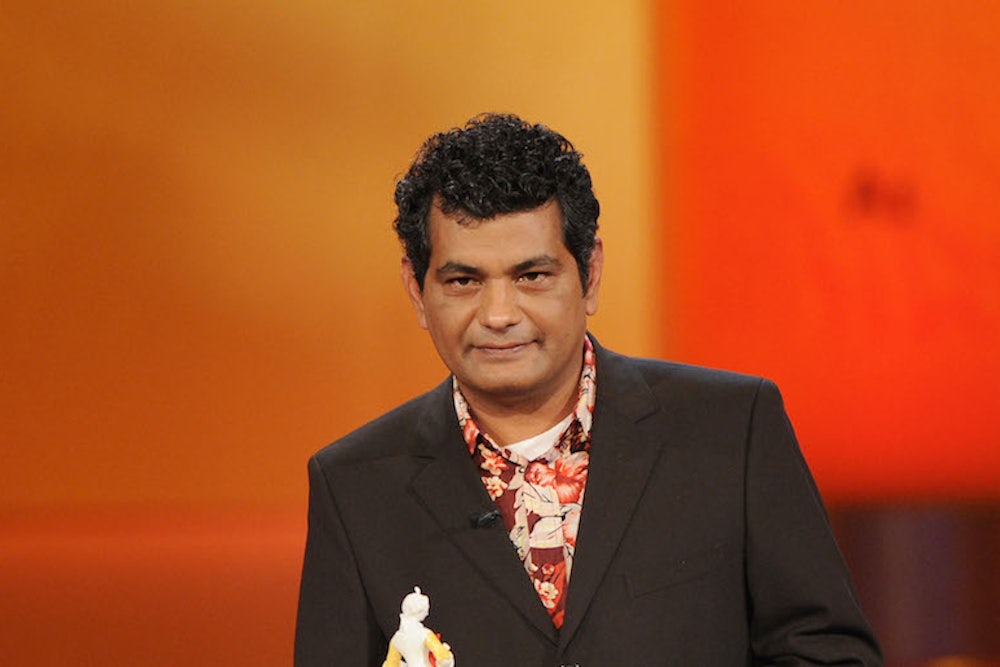In the past month, two of Pakistan's most famous journalists have been attacked. Raza Rumi, a popular columnist and television personality, was ambushed in Lahore, and his driver was killed. Then, two weeks ago, Hamid Mir, arguably the country's most famous anchorman, was shot six times in Karachi. He is currently recovering from his injuries. (A long Amnesty International report on the dangers facing journalists has just been released.)
Rumi had been on a Taliban hit list, which is scary enough. Mir, however, accused the country's intelligence service, the ISI, of the attack. His brother even went on GEO, Mir's network, and directly blamed the agency. (The channel broadcast a picture of the ISI's chief, essentially accusing him of attempted murder.) Even liberal commentators argued that the channel had gone too far without concrete evidence. But no one doubts the ISI's numerous and long-held connections to militant groups, or its role in harassing and harming the country's journalists.
To discuss all this, and the climate in Pakistan more broadly, I called up Mohammed Hanif, the bestselling author who also writes frequently about politics and culture. Before our conversation succumbed to phone problems, we discussed how the situation in Pakistan has worsened for journalists, why so many cases go unsolved, and why he remains committed to writing nonfiction as well as novels.
Isaac Chotiner: How is life as a journalist in Pakistan different from how it was even a decade ago?
Mohammed Hanif: It has changed in two ways. It was always assumed that if you were a small-town reporter, or working in a conflict zone, or in border zones, or Balochistan, then you could be killed. It was assumed that this could happen to you. But generally the so-called mainstream journalists or television anchors or people working in big cities—Islamabad, Karachi, Lahore—would be left alone. People would contest you or try to buy you or make up a big scandal about you, but killing you was not a possibility. But now with militant groups, or the government, or anyone, it doesn’t matter how big or famous you are. It can happen. No one will take responsibility, and people will try to argue over who tried to kill you.
IC: It seems that when these attacks happen, it is impossible to tell which agencies or groups were behind them. There are no investigations. Alliances are shady and unclear between militant groups and the government. Attacks happen, and they remain eternal mysteries.
MH: That is exactly what this is about. We know that this is our history. And it isn’t just about journalists. It is about prime ministers, and scholars, and social workers. When people are eliminated, and there is pressure from certain groups, investigation always, without any exception, fail. That is the scary thing.
IC: Given what you are saying, the response of Hamid Mir’s television channel, GEO, was surprising. They pointed the finger.
MH: It has become fashionable now to lecture GEO. I am not a big fan of GEO. They are like any news channel. They are not much different than Fox News in the United States. They are very profit-driven. They want to make money from news. But for any honest, decent journalist to say that the ISI is not accused of anything—there are hundreds of court cases in Pakistan, where people from the ISI and the army have been accused! But the Pakistani media has never covered these stories. Hundreds of cases.
But it is not covered. It has never been covered. Hamid Mir did, for a bit, try to cover these stories, and he was shot. Now to say that this has never happened before Mir, but only now one of our biggest colleagues is shot? Somebody is telling us that they can do this to him. That is a very, very scary message.
Maybe GEO shouldn’t have done what they did, but the rest of the media shouldn’t have done what they have been doing for years.
IC: It seems like a very tense time in Pakistan. The Musharraf trial, news stories about Bin Laden, civil-military tensions, two very prominent journalists shot at or shot. Is there something larger going on now in the country?
MH: [Laughs] I think what is happening are different little battles. As a citizen, even a few months ago, when people would ask if I was scared, I would say yes. But scared as a citizen. You go out, anything can happen. I am not in more danger than anyone else.
But in the last couple of months I have thought that maybe we have been fooled. Maybe there are people who we don’t know, who we have no idea about, but when we say something or open our mouth, that person will come after us, as journalists. You don’t know who will get offended. That is how things have become.
IC: Do you ever feel like just writing fiction and forgetting journalism?
MH: Yes. [Laughs]. The problem is that when you have been doing journalism for as long as I have been doing it, then that is not even a choice. You are a citizen. You have a voice. So that is not even a choice to make. If I stopped being a journalist, what would I do?
This interview has been edited and condensed.
